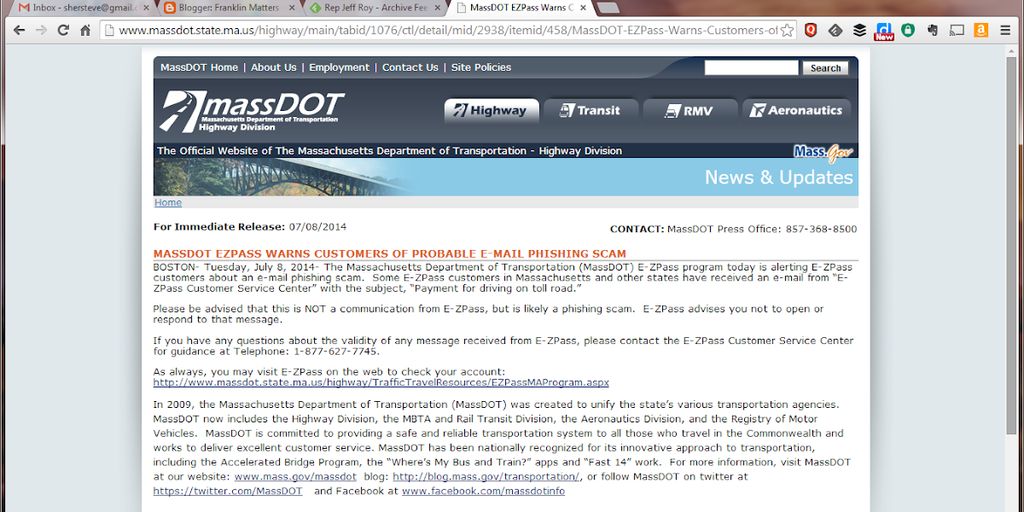Affordable Logistics CRM Solutions: Enhancing Your Supply Chain on a Budget
In today’s competitive logistics and transportation industry, efficiency and customer satisfaction are paramount. Leading companies are increasingly turning to modern logistics CRM software to streamline their operations, enhance customer service, and boost overall performance. This article explores affordable logistics CRM solutions that can help your business thrive without breaking the bank.
Key Takeaways
- Modern logistics CRM software is essential for improving efficiency and customer satisfaction in the logistics and transportation industry.
- Affordable logistics CRM solutions offer features like centralized customer data, automated task management, and real-time shipment tracking.
- Choosing the right logistics CRM involves assessing your business needs, evaluating CRM features, and considering scalability.
- Implementing CRM best practices, such as setting clear goals and training your team, can significantly enhance your logistics operations.
- Top affordable logistics CRM solutions in the market include Pipeline CRM, Freshsales, and Zoho CRM.
Key Features of Affordable Logistics CRM Solutions
Affordable logistics CRM solutions offer a range of features designed to enhance efficiency and streamline operations without breaking the bank. These systems are tailored to meet the unique needs of logistics companies, providing tools that improve customer satisfaction and operational efficiency.
Centralized Customer Data
One of the most critical features is the centralization of customer data. This allows sales teams to handle and respond to inquiries promptly, ensuring that all customer information is easily accessible and up-to-date. Centralized data helps in better decision-making and enhances overall operational efficiency.
Automated Task Management
Automated task management is another essential feature. By automating repetitive tasks such as scheduling meetings and sending invoices, logistics CRM systems free up valuable time for your team. This automation not only boosts productivity but also ensures that no task is overlooked.
Real-Time Shipment Tracking
Real-time shipment tracking is crucial for logistics companies. This feature allows businesses to monitor shipments in real-time, providing customers with accurate updates and improving overall service quality. Real-time tracking helps optimize delivery management and ensures timely deliveries.
Affordable logistics CRM solutions: boosting efficiency without breaking the bank. Explore top affordable CRM options for logistics companies, benefits of affordable CRM systems, and scalability strategies for business growth.
How to Choose the Right Logistics CRM for Your Business
Selecting the ideal CRM for your logistics business can be a daunting task, but it’s crucial for enhancing efficiency and customer satisfaction. Here’s a guide to help you make an informed decision.
Assessing Your Needs
Start by identifying the specific needs of your logistics operations. Consider areas like order management, customer communication, and supply chain collaboration. Pinpointing these needs will help you choose a CRM that aligns with your business goals.
Evaluating CRM Features
Once you have a clear understanding of your needs, evaluate the features of different CRM solutions. Look for functionalities such as automated task management, real-time shipment tracking, and centralized customer data. These features can significantly boost efficiency without breaking the bank.
Considering Scalability
It’s essential to choose a CRM that can grow with your business. Future-proof your investment by selecting a scalable CRM solution. This ensures that as your business expands, your CRM can handle increased demands without requiring a complete overhaul.
Remember, the right CRM can transform your logistics operations, leading to improved customer satisfaction and operational efficiency.
Implementing CRM in Logistics: Best Practices

Implementing a CRM system in logistics can significantly enhance operational efficiency and customer satisfaction. Here are some best practices to ensure a smooth implementation process:
Setting Clear Goals
Before diving into CRM implementation, it’s crucial to define specific goals. Whether it’s reducing delivery delays, improving customer communication, or better forecasting demand, having clear objectives will guide the entire process.
Training Your Team
A well-trained team is essential for successful CRM adoption. Conduct comprehensive training sessions to ensure that all team members are comfortable using the new system. This will help in minimizing resistance to change and maximizing the benefits of the CRM.
Monitoring Performance
Regularly monitor the performance of the CRM system to ensure it meets your set goals. Use key performance indicators (KPIs) to track progress and make necessary adjustments. This ongoing evaluation will help in continuously optimizing the system for better results.
Implementing a CRM system is not a one-time task but an ongoing process that requires continuous monitoring and adjustment to align with evolving business needs.
Benefits of Using Logistics CRM for Small and Medium Enterprises
Cost Efficiency
Implementing a logistics CRM can significantly reduce operational costs by automating repetitive tasks such as scheduling and invoicing. This automation frees up valuable time for your team to focus on more strategic activities. Additionally, real-time shipment tracking and route optimization can lead to substantial savings in fuel and labor costs.
Improved Customer Service
A logistics CRM centralizes customer data, enabling your team to respond to inquiries promptly and efficiently. This centralized system ensures that all customer interactions are logged and accessible, leading to quicker resolution times and higher customer satisfaction. Moreover, the ability to analyze customer data allows for more personalized service and better decision-making.
Enhanced Collaboration
With a logistics CRM, all team members have access to the same up-to-date information, facilitating better collaboration and communication. This unified approach ensures that everyone is on the same page, reducing misunderstandings and improving overall efficiency. The software also supports better coordination between different departments, such as sales, operations, and customer service, leading to a more cohesive workflow.
Implementing a logistics CRM can transform the way small and medium enterprises operate, making them more competitive and efficient in the marketplace.
Top Affordable Logistics CRM Solutions in the Market
Pipeline CRM
Pipeline CRM is a robust solution designed to streamline distribution with affordable logistics CRM solutions. It offers features like on-time fulfillment, shipment tracking, and customization options. Pipeline CRM is known for its user-friendly interface and powerful cloud software features.
Freshsales
Freshsales stands out for its comprehensive CRM integration capabilities. It provides tools for managing customer relationships, automating sales processes, and tracking shipments in real-time. Freshsales is a cost-effective choice for businesses looking to enhance their logistics operations.
Zoho CRM
Zoho CRM offers a versatile platform with a range of features tailored for logistics companies. From managing customer data to automating tasks, Zoho CRM helps businesses implement cost-effective strategies. Its future trends and scalability make it a popular choice among small and medium enterprises.
Choosing the right CRM can significantly impact your logistics operations, ensuring efficiency and customer satisfaction.
Enhancing Sales Performance with Logistics CRM
Lead Management
Affordable logistics CRM solutions streamline supply chain operations by offering robust lead management features. These tools help you track and nurture leads efficiently, ensuring no potential customer falls through the cracks. Effective lead management is crucial for maintaining a steady sales pipeline and driving revenue growth.
Sales Forecasting
With advanced sales forecasting capabilities, logistics CRM systems enable businesses to predict future sales trends accurately. This allows for better resource allocation and strategic planning. By analyzing historical data and current market conditions, companies can make informed decisions that enhance their overall sales performance.
Customer Communication
Optimized communication is a key benefit of using logistics CRM. These systems facilitate seamless interaction with customers, ensuring timely updates and responses. Enhanced communication not only improves customer satisfaction but also fosters long-term relationships, which are essential for sustained business growth.
Integration with existing systems enhances efficiency and decision-making, making logistics CRM an invaluable tool for any business looking to improve its sales performance.
Challenges and Solutions in Adopting Logistics CRM
Overcoming Resistance to Change
One of the primary challenges in adopting a Logistics CRM is overcoming resistance to change within the organization. Employees may be accustomed to existing processes and hesitant to adopt new technology. Effective communication and training are crucial to address this issue. Highlighting the benefits of the CRM, such as improved efficiency and streamlined workflows, can help in gaining employee buy-in.
Ensuring Data Security
Data security is a significant concern when implementing a new CRM system. Logistics companies handle sensitive information, and any breach can have severe consequences. To mitigate this risk, it’s essential to choose a CRM with robust security features, such as encryption and regular security audits. Additionally, educating employees about best practices for data security can further protect the organization.
Integrating with Existing Systems
Integrating a new CRM with existing systems can be a complex task. It’s important to ensure that the CRM can seamlessly connect with other software used in the organization, such as ERP and TMS systems. This integration is vital for maintaining a seamless data flow and avoiding data silos. Working with a CRM provider that offers strong integration support can make this process smoother.
Implementing a Logistics CRM can significantly enhance your supply chain efficiency, but it’s essential to address these challenges proactively to ensure a successful adoption.
Adopting a Logistics CRM can be challenging, but with the right solutions, your business can thrive. Our team at MasteringAgency.com specializes in creating custom logistics websites and marketing strategies tailored to your needs. Ready to overcome these challenges and grow your business?
Conclusion
In conclusion, adopting an affordable logistics CRM solution can significantly enhance your supply chain operations without breaking the bank. By centralizing customer data, automating routine tasks, and improving communication across departments, these CRM systems ensure that efficiency and customer satisfaction remain at the forefront of your logistics business. Whether you are looking to increase sales performance, streamline operations, or improve customer service, a well-chosen logistics CRM can provide the tools and insights needed to stay competitive in the fast-paced logistics and transportation industry. Investing in the right CRM software is not just a cost-saving measure; it is a strategic move to future-proof your business and drive sustainable growth.


